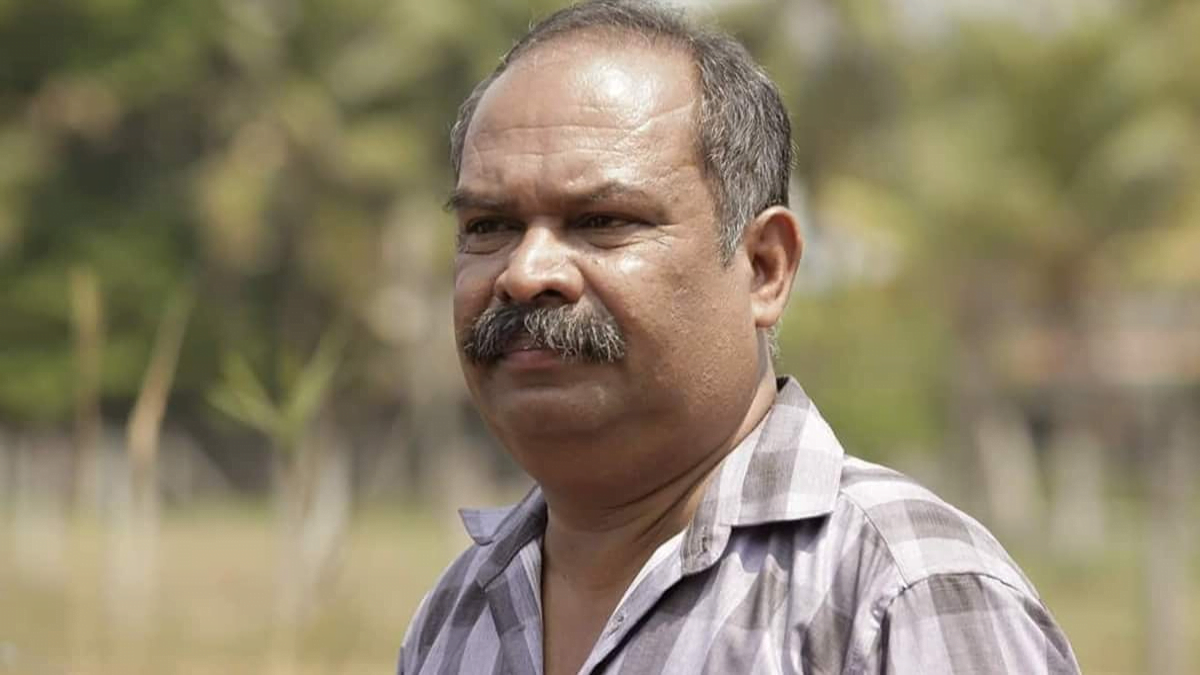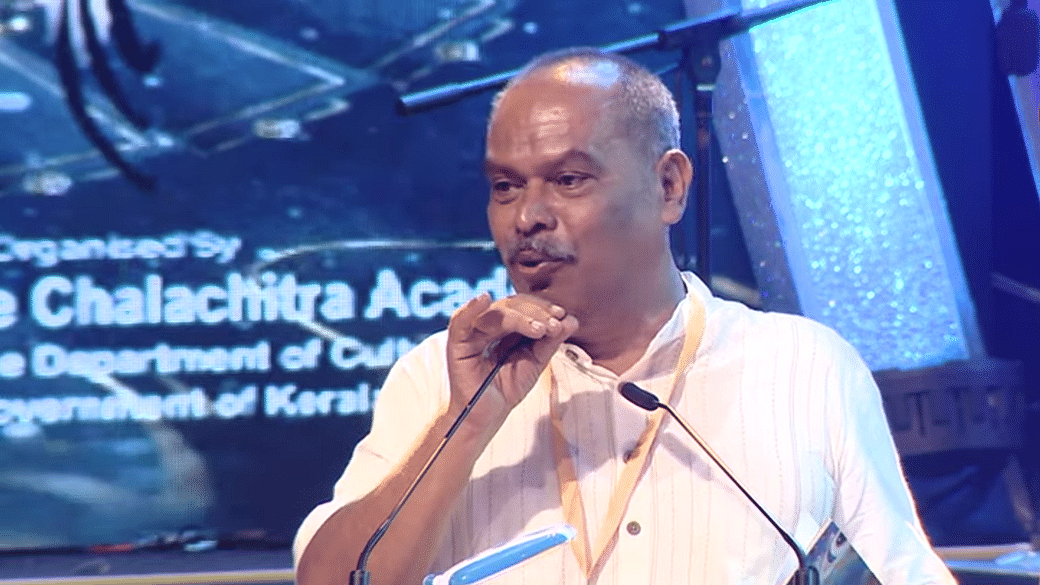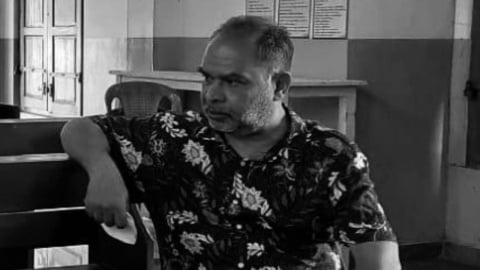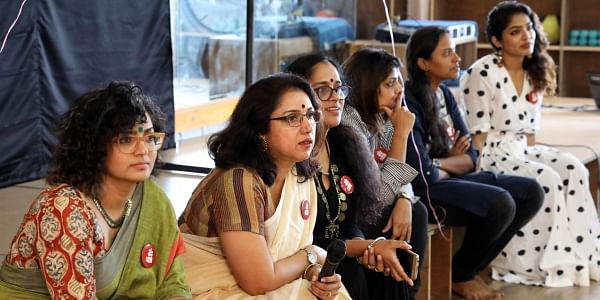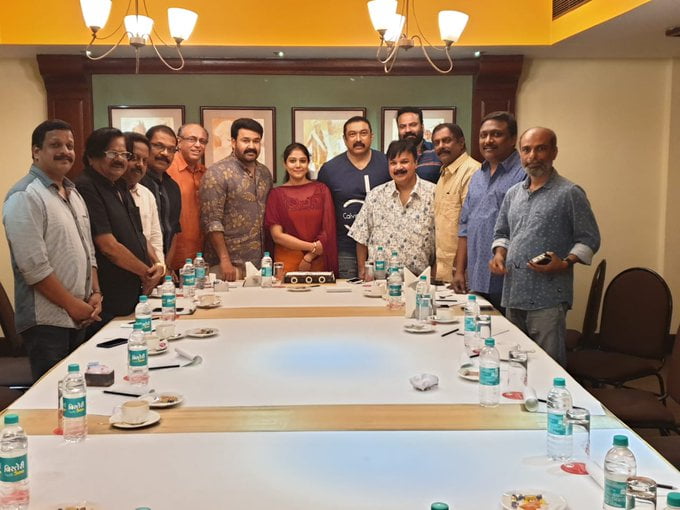At the Kerala State Film Awards Ceremony on 21st July, the Malayalam actor Alencier Ley Lopez made a shocking and misogynistic comment on the statuette after receiving the Special Jury Award. He asked the awards organisation not to tempt him by giving such a curvaceous figure of a woman in the form of the award statuette. He suggested to rather present them with a male sculpture as a symbol of male strength, saying–
‘I have a request. Do not tempt us by presenting statuettes modelled on women. We have a Chief Minister who is the epitome of masculine strength. So, we should be awarded with figurines that reflect the strength of a man. . .’
This is not the first time the actor is making such a misogynistic comment and beyond this, it was also meant to appease the ruling Chief Minister of the state. But, accidentally it also revealed his mentality towards women as a whole. He also added that he would stop his acting career on the day he received such a male statue as award. Alencier also requested to increase the award prize money from twenty-five thousand. However, the range of the discourse that he created in online and offline forums is no small feat. It stirred much conversation on the significance of the statuette.
His history of gender controversies are aplenty. They equally shock and perplex viewers. Previously he has been linked to a #MeToo allegation when an artist, Divya Gopinath openly shared the sexual harassment she faced from Alencier and demanded an open apology. Consequently, he had to offer one, saying that he is a growing human who might have done wrong deeds in the past. Another allegation was from actor and Transgender rights activist Sheetal Shyama who shared her bad experiences with the actor on a film set in a Facebook post. He also inappropriately commented in a rape case involving a bishop by shaming the victim.
Shockingly, Alencier was never banned from the Malayalam film industry and continues to grow in his career and following strength, deriving ample support from the patriarchal figures within and outside the industry.
Shockingly, Alencier was never banned from the Malayalam film industry and continues to grow in his career and following strength, deriving ample support from the patriarchal figures within and outside the industry. Through the passiveness from the actor’s association AMMA (Association of Malayalam Movie Artists), it is clear that the Malayalam film industry popularly enjoys the status quo. They are only minutely threatened by the female actors association, WCC. To promote such misogynistic actors, AMMA registers no complaint against them as in the Divya Gopinath case.
Though she initiated a complaint by post to AMMA, they did not acknowledge it and therefore, she had to send an email and make it public. Only after five days, she received a call from the AMMA president, actor Mohan Lal enquiring about it. There have not been any steps to oust such behaviours and therefore, it led to the creation of WCC (Women in Cinema Collective) by the daring female actors from the industry. Now, the AMMA is exacting revenge by not casting them in new movies, thereby destroying their film career for being outspoken and rebellious.
The gender disparity that has been happening for quite a while in Malayalam, Indian or world cinema is a complex topic to be dealt with. The most important cause for this is nothing but the lack of true uunity to voice and address the issue. Instead of protesting misogyny, the personal interests and scope for career advancement of the actors always emerge victorious at the expense of their fellow women co-workers. It is also important to understand that while a career is important for sustenance, the satisfaction that one could derive from work is equally important even though it could take some effort and struggle. Only if that struggle continues and overwhelms the industry, a revolution or change could really happen. Also, it could become a wildfire that will grow and continue to spread, changing the power relations in the world cinema.
In the words of the Malayalam actor and WCC member Parvathy Thiruvothu, even the most popular female actors could get only fifty percent of the remuneration given to the male actors.
A direct and tangible dimension to be corrected with this issue is ‘the right to equal pay’ as guaranteed to all citizens of the country. In the words of the Malayalam actor and WCC member Parvathy Thiruvothu, even the most popular female actors could get only fifty percent of the remuneration given to the male actors. Other female actors, even when in the lead roles, could only get 15-20% of the male actors’ remuneration. In addition to these, the producers and production houses view the female actors as replaceable. Hence, there is little effort from them to mend the crumbling situation in the industry. WCC was formed as an organisation to fight on this line, addressing the often neglected questions of equality and basic rights.
On the other hand, the reasons put forward by the male actors is that stardom is the determining factor to acting skills. It simply means that there is no equal pay for equal work, but they could demand equal payment only if the female lead could influence the distribution rates. Therefore, they simply justify their unjust behaviour under the pretext of these false statements. This statement is also important since it briefly summarises the idea that talent is much inferior to the monetary influence of the actors involved in Malayalam film projects. Whether spoken accidentally or not, Dhyan Sreenivasan has literally overridden the most popular line about Malayalam film industry which claims that the industry is all about art and culture and does not focus on the commercial dimension of films, in direct contrast to the other film industries in the country. In Dhyan Sreenivasan’s words,
‘Irrespective of everything, it’s a male-dominant industry. Usually the business happens – in terms of satellite and OTT rights – because of the male stars . . . So, if female artistes can bring in that amount of money, they can demand equal pay. It must be when they can pull off a movie on their own.‘
Though a well established and honored industry, it still is insensitive even to the most pressing issues of the times, especially those concerning women actors. As a culturally influential medium, it does, in fact, an excellent job in modifying the psyche of the viewers. But it becomes an influence with zero impact with the heavy load of gender disparity that it harbours within. The careers of the female actors who formed the WCC is at high risk due to their bold step. Many of them have already been erased from the Malayalam film industry and they make their presence felt only through the social media or other chosen professions. In addition, they are personally targeted and attacked for any of their moves on social media, be it on a written post or a picture from a photoshoot like in the case of Rima Kallingal. But the industry moves on with its patriarchal dominance unperturbed.
AMMA literally translates as ‘mother’ in Malayalam but the male-dominated association has been often ridiculed for its misogynistic and patriarchal behavior that enables partiality towards the male actors. Those who want to remain or become well established in the industry do not have any other choice besides silencing themselves to sustain their career.
But irrespective of all this, it is the female Malayalam actors who initiated the very first move to form an organisation like WCC in the country or even spoke openly about the injustice happening here, whereas the others provide only silent noises, in the words of Parvathy Thiruvothu. Taking inspiration from WCC, the Tamil actor Varalaxmi Sarathkumar has started Save Shakti to address gender disparity and other related issues in the Tamil film industry which is a remarkable consequence.
About the author(s)
Vidhu (she/her) is an emerging writer with Masters in English language and literature, keen on learning the politics of the world around her. She has dreams to create a career in journalism and writing, where she unburdens her self. She has a great taste for movies from varies geographical spans and pens down poetry in magical charms. She is open to projects or research centring on humanities.
